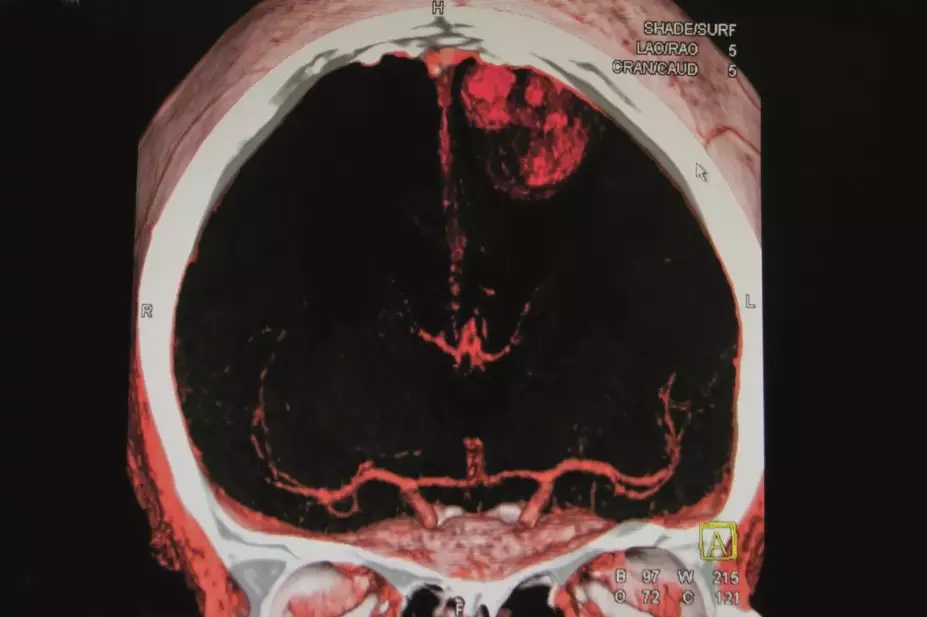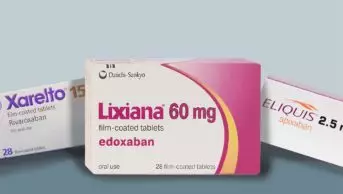
Shutterstock.com
Around 40% of atrial fibrillation (AF) patients who have an intermediate or high risk of stroke are treated only with aspirin, even though it is less effective than oral anticoagulation (OAC), according to a study.
A team led by Jonathan Hsu, a cardiologist at the University of California, San Diego, also discovered that a third of the AF patients without significant coronary heart disease were prescribed both a blood thinning drug and aspirin, which increased their risk of a bleed and brought no treatment benefits.
“These data indicate a gap in care, most prominent in patients with or at risk of coronary artery disease, and should draw attention to a high rate of prescription of aspirin therapy in AF patients at risk for stroke, despite previous data that show aspirin to be inferior to OAC in this population,” say the researchers. “Our findings have important implications for AF patients, particularly as the benefit of stroke risk reduction with OAC over aspirin prescription increases as annual stroke risk increases.”
The researchers’ conclusions are based on an analysis of AF patients enrolled in the American College of Cardiology’s Practice Innovation and Clinical Excellence registry between 2008 and 2012. They identified 210,380 patients at moderate-to-high risk for thromboembolism on antithrombotic therapy. Among these patients, 80,371 (38.2%) were treated with aspirin alone and 130,009 (61.8%) were given warfarin or non-vitamin K antagonist OACs.
In a secondary analysis, which used a more sensitive tool to identify patients at risk of stroke who would benefit from anticoagulant therapy, the researchers found that of 294,642 patients, 118,398 (40.2%) were treated with aspirin alone and 176,244 (59.8%) were treated with warfarin or non-vitamin K antagonist OACs.
Patients with a history of hypertension, dyslipidemia, coronary artery disease, prior myocardial infarction, unstable and stable angina, recent coronary artery bypass graft, and peripheral arterial disease were more likely to be treated with aspirin alone. Being male, having a higher body mass index, having a prior stroke/transient ischaemic attack, or having prior systemic embolism and congestive heart failure were associated with more frequent prescriptions of OAC.
“Because many of the predictors of aspirin use alone include conditions that may warrant aspirin therapy regardless of the presence of AF, much of the underutilisation of appropriate anticoagulant agents may be driven by either the perception that aspirin by itself is sufficient or that the risk of aspirin plus anticoagulation is not worth the benefit,” the researchers conclude in the Journal of the American College of Cardiology
[1]
(online, 20 June 2016).
Eve Knight, chief executive of charity Anticoagulation Europe, based in Kent, is not surprised by the findings.
“As a charity we are working alongside a range of experts to raise awareness of this issue and have launched a campaign called AF180,” she says. “The 180 refers to guidance from the National Institute for Health and Care Excellence issued two years ago that said that aspirin should not be used on its own to prevent stroke in AF and that anticoagulants should be used to reduce the risk of stroke in patients with AF where appropriate.”
Knight says that, while there have been some improvements, the guidance is not being implemented for many patients. “We are not preventing as many AF-related strokes as we could,” she adds.
References
[1] Hsu JC, Maddox TM, Kennedy K et al. Aspirin instead of oral anticoagulant prescription in atrial fibrillation patients at risk for stroke. Journal of the American College of Cardiology 2016;67:2913–2923. doi: 10.1016/j.jacc.2016.03.581


